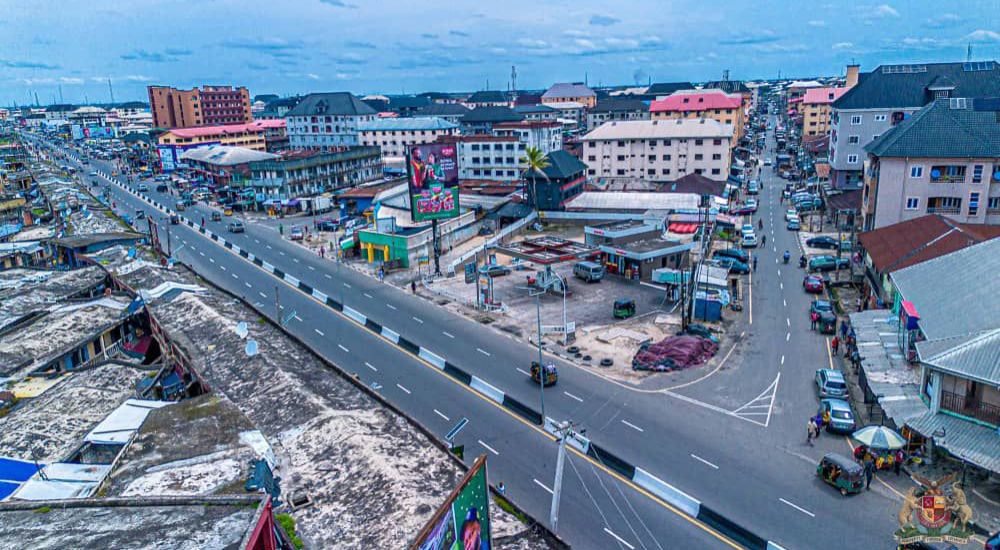Tinubu’s ‘Renewed Hope’ Infrastructure Working — Minister

The Minister of State for Works, Bello Muhammad Goronyo has said President Bola Tinubu Renewed Hope Agenda on works is yielding the desired results.
The minister stated this in Sokoto while giving an account of the ministry’s performance in two years of President Tinubu.
According to the Minister, Nigeria is witnessing a “renewed commitment” to road infrastructure that is already unlocking economic potential, easing movement, and restoring national pride.
Goronyo said the administration inherited over 36,000 kilometers of roads, some completed, many abandoned, and others in deplorable condition.
He said President Tinubu made it clear from the onset that no project should be neglected.
“He gave us clear instructions: take every road project as a priority, on top of that, he introduced four legacy projects that speak to his vision of unifying the country and unlocking economic corridors.”
He said the legacy projects include the 750-kilometer Lagos-Calabar Coastal Highway, where Phase 1 (30km) has already been completed. The road is expected to traverse major economic hubs across Lagos, Ogun, Ondo, Delta, Bayelsa, Rivers, and Cross River States.
Also on the list is the Sokoto-Badagry Superhighway, a 1,068-kilometer transnational route initially conceptualized by former President Shehu Shagari. Unlike before, construction is now beginning from Sokoto, not Badagry, symbolizing a strategic shift.
The road will pass through seven states: Sokoto, Kebbi, Niger, Kwara, Oyo, Ogun, and Lagos. According to Goronyo, work has already begun and is progressing steadily.
The third project connects Ebonyi to Benue, Nasarawa, and the FCT covering about 450 kilometers while the fourth stretches from Akwanga in Nasarawa through Jos and Bauchi, terminating in Gombe.
Together, these mega-projects aim to redefine the connectivity and competitiveness of Nigeria’s road network.
The minister said that in the North West region, including his home state of Sokoto, massive rehabilitation is taking shape.
“The reconstruction of the Zaria-Funtua-Scheme-Tsafe-Gusau-Talata Mafara-Sokoto highway which is 352 kilometers long is being handled by four major companies, and about 50 kilometers have already been reinforced with concrete which can last up to 50 years, far more durable than asphalt, which typically lasts 15 years or less.
The minister also revealed that similar progress is being recorded on the Abuja-Kaduna-Zaria-Kano expressway. The project, previously stalled, has been revived with a focus on temporary palliative measures to make the road motorable in the short term.
“Before now, people spent up to five hours traveling from Abuja to Kaduna. Today, it takes just two hours,”
These efforts, according to Goronyo, have not gone unnoticed. “If anyone travels across the country today, they will see that serious work is happening. Roads are being constructed and rehabilitated at a new scale and standard.”
He said aside from roads, the Tinubu administration is also investing in bridge infrastructure. Notable achievements include the rehabilitation of the nearly-collapsed Jimeta Bridge in Yola, the newly constructed Numan Bridge in Adamawa, and several others flagged off in Borno, Kano, and Nasarawa States.
In Sokoto, he said the APC-led administration has transformed the city’s landscape. “Before now, potholes dotted every corner of the city. Today, new roads are being constructed even at the local government level, with street lights lighting up the night,” Goronyo noted.
He commended Governor Ahmed Aliyu Sokoto’s prudence and transparency, especially in delivering major infrastructure and social services without borrowing a kobo. Stating that he is inspired by Aliyu’s administration.
“He has not borrowed a single kobo. Yet, we are seeing progress in health, education, civil service welfare, and the inclusion of persons with disabilities.”
On security, Goronyo attributed the relative peace in many communities to a collaborative effort between state governments and the federal government, particularly through the Office of the National Security Adviser.
He recounted personal loss due to insecurity, saying his community, Goronyo, was once plagued by Sunday market-day attacks by bandits.
“But now, the attacks have reduced drastically. This is due to improved logistics support and sustained engagement with security agencies,” he said.
On the financing and sustainability of road infrastructure, the minister was clear-eyed. With a national road maintenance bill running into hundreds of billions annually, he advocated for more reliance on Public-Private Partnerships (PPP).
He cited successful PPP models like the Akwanga-Keffi-Lafia project, built through Chinese financing, as viable paths forward.
He said PPP helps the government save money and ensures quicker delivery of infrastructure, but must approach it cautiously and with proper due diligence before signing agreements.
Delays in execution, he noted, are sometimes due to insecurity, funding constraints, or lack of compensation to property owners along road corridors which are issues outside the direct control of contractors or the ministry.
Nevertheless, the administration remains determined. “President Tinubu is serious about fixing Nigeria. He keeps saying Nigeria is open for business, but that can’t happen without fixing infrastructure. And roads are the most affordable and widely used mode of transport in the country,” Goronyo said.
To further enhance connectivity, the government is complementing road infrastructure with heavy investment in rail systems under PPP arrangements.
“We cannot continue to rely on roads alone. The President is committed to delivering alternative and effective rail lines to ease pressure on our highways,” he explained.
Goronyo reaffirmed the federal government’s resolve to maintain existing roads while delivering new ones. Through the Federal Emergency Road Maintenance Agency (FERMA), which he oversees, the ministry has inherited thousands of kilometers requiring urgent attention. But funding remains a challenge.
“Maintenance shouldn’t rely solely on budgetary allocations. For example, in 2025, we have about ₦165 billion allocated, but that barely translates to ₦3 billion per state nowhere near what is needed. We require over ₦880 billion annually to maintain our roads,” he said.
“This man came with a big heart and a renewed commitment not just to roads, but to fixing Nigeria. He’s matching words with action,” Goronyo said.
Tinubu’s ‘Renewed Hope’ Infrastructure Working — Minister is first published on The Whistler Newspaper



